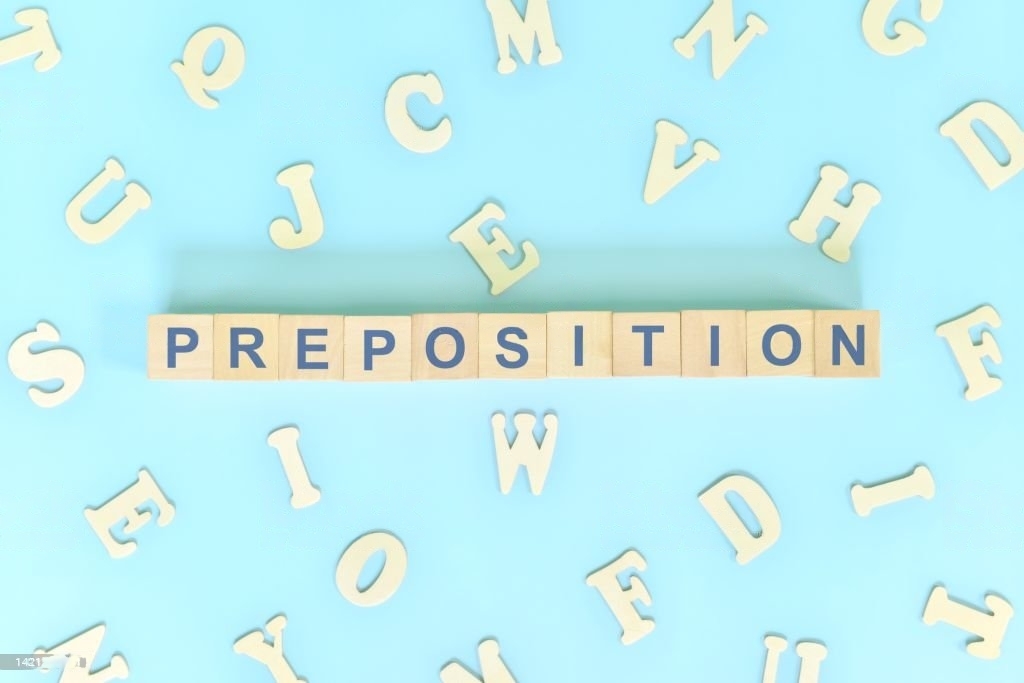Learning French can be a fun and exciting journey, but let’s face it, dealing with pronouns can be a bit tricky. Don’t worry; I am here to make it easy for you. In this guide, we’re going to dive into the world of French double object pronouns, where we’ll discuss how to use both direct and indirect object pronouns in the same sentence. So grab your beret, and let’s get started!
In French, understanding the concepts of Indirect Object Pronouns (IOP or COI – Complément d’Objet Indirect) and Direct Object Pronouns (DOP or COD – Complément d’Objet Direct) is crucial for constructing sentences correctly. Let’s break down each concept with clear explanations and examples:
- 1. Indirect Object Pronouns (IOP or COI):
- 2. Direct Object Pronouns (DOP or COD):
- 3. Key Differences in French Double Object Pronouns:
- 4. Basic Rules of French Double Object Pronouns
- 5. Negative Sentences with French Double Object Pronouns
- 6. Using French Double Object Pronouns (COD and COI) with the Imperative:
- My works
1. Indirect Object Pronouns (IOP or COI):
Principle:
- An indirect object is a noun that receives the action of the verb indirectly, often indicating “to whom/à qui or “for whom/pour qui” the action is done.
- In French, IOPs replace indirect objects to avoid redundancy and make sentences more concise.
IOP/COI Pronouns:
- me (to me)
- te (to you, informal)
- lui (to him, to her)
- nous (to us)
- vous (to you, formal)
- leur (to them)
Examples with IOPs:
- Je parle à mon ami. (I’m talking to my friend.)
- Je lui parle. (I’m talking to him/her.)
- Il donne le livre à Marie. (He gives the book to Marie.)
- Il lui donne le livre. (He gives her the book.)
- Nous envoyons une letter à nos parents. (We’re sending a letter to our parents.)
- Nous leur envoyons une lettre. (We’re sending them a letter.)
2. Direct Object Pronouns (DOP or COD):
Principle:
- A direct object is a noun that directly receives the action of the verb, answering the question “what” or “whom.”
- DOPs replace direct objects to avoid repetition and make sentences more concise.
DOP/COD Pronouns:
- me (me)
- te (you, informal)
- le (him, it – masculine)
- la (her, it – feminine)
- nous (us)
- vous (you, formal)
- les (them)
Examples with French Double Object Pronouns:
- J’aime la musique. (I love the music.)
- Je l’aime. (I love it.)
- Elle regarde le film. (She’s watching the movie.)
- Elle le regarde. (She’s watching it.)
- Ils mangent les pommes. (They’re eating the apples.)
- Ils les mangent. (They’re eating them.)
3. Key Differences in French Double Object Pronouns:
- Role in the Sentence:
- IOPs indicate “to whom” or “for whom” the action is done.
- DOPs answer “what” or “whom” regarding the action.
- Pronoun Forms:
- IOPs (COI) include: me, te, lui, nous, vous, leur.
- DOPs (COD) include: me, te, le, la, nous, vous, les.
- Gender and Number:
- DOPs (le, la, les) must agree in gender and number with the replaced noun.
- IOPs (lui, leur) don’t change for gender and number.
- Position in Sentence:
- IOPs typically come before the verb.
- DOPs can come before the verb or be attached to the infinitive, gerund, or command forms of the verb.
Understanding the distinctions between IOPs and DOPs is vital for constructing grammatically correct and concise sentences in French. Practice and context will help you become proficient in their usage.
4. Basic Rules of French Double Object Pronouns
Before we jump into examples, let’s go over the basic rules for using double object pronouns in French.
Rule 1: Placement Matters
You can place double object pronouns before the verb or attach them to the end of an infinitive, gerund, or affirmative command verb form. Remember to maintain the correct order: indirect object pronoun (IOP) before the direct object pronoun (DOP).
Rule 2: Choose the Right Pronouns
Select the appropriate direct and indirect object pronouns for your sentence. Here are the pronouns you’ll use:
- DOPs: me, te, le, la, nous, vous, les
- IOPs: me, te, lui, nous, vous, leur
Rule 3: Contractions for “me”
When the indirect object pronoun is “me,” and the direct object pronoun is “le” or “la,” they contract into “m'” to avoid a clash of vowel sounds.
Now, let’s break down these rules with six examples each:
Examples with French Double Object Pronouns
Example Set 1: Before the Verb
- Je te le donne. (I give it to you.)
- Elle **nous l’**envoie. (She sends it to us.)
- Tu me la montres. (You show it to me.)
- Ils nous les apportent. (They bring them to us.)
- On vous les prête. (We lend them to you all.)
- Vous nous les racontez. (You tell us about them.)
Example Set 2: Attached to the Verb
- Veuillez me le montrer. (Please show it to me.)
- Il peut nous le prêter. (He can lend it to us.)
- Nous aimons vous les donner. (We like to give them to you all.)
- J’espère te la vendre. (I hope to sell it to you.)
- Elle va me les montrer. (She is going to show them to me.)
- On doit nous les expliquer. (They must explain them to us.)
5. Negative Sentences with French Double Object Pronouns
Rule 4: In negative sentences, place “ne” (or “n'”) before the double object pronouns.
- Je ne te le donne pas. (I don’t give it to you.)
- Il ne me la prête pas. (He doesn’t lend it to me.)
Rule 5: Contractions for “me” in Negative Sentences
When “me” is the indirect object pronoun in a negative sentence, it contracts into “m’.”
- Je ne me le donne pas. (I don’t give it to myself.)
- Elle ne **m’**a la pas envoyé. (She didn’t send it to me.)
Now, to reinforce your understanding, here are some additional examples:
Examples: French Double Object Pronouns before the Verb:
- Elles nous les montrent. (They show them to us.)
- Il te la prêtera demain. (He will lend it to you tomorrow.)
- On **me l’**a volé. (Someone stole it from me.)
- Tu nous les donnes souvent. (You often give them to us.)
- Je te le recommande vivement. (I highly recommend it to you.)
- Nous les lui apportons ce soir. (We bring them to him/her tonight.)
Examples: French Double Object Pronouns attached to the Verb:
- Elle va me le dire. (She is going to tell it to me.)
- Nous allons vous les montrer. (We are going to show them to you all.)
- Vous devez me la rendre maintenant. (You must give it back to me now.)
- J’aimerais te les offrir. (I would like to offer them to you.)
- Ils vont nous les expliquer en détail. (They will explain them to us in detail.)
- Je peux vous la montrer demain. (I can show it to you tomorrow.)
6. Using French Double Object Pronouns (COD and COI) with the Imperative:
Rule 1: In affirmative imperative sentences, when you have both COD and COI pronouns, place the COD (Direct Object Pronoun) before the COI (Indirect Object Pronoun), and both pronouns go directly before the verb. For -er and -ir verbs, add a hyphen between the verb and the first pronoun.
Examples
- Donne le livreà Pierre ! (Give the book to Pierre!)
- Donne-le-lui ! (Give it to him!)
- Prête ta voitureà tes amis ! (Lend your car to your friends!)
- Prête-la-leur ! (Lend it to them!)
Rule 2: In negative imperative sentences, when using French double object pronouns, place both the COD and COI pronouns before the verb and separate them from the verb by a space.
Examples
- Ne donne pas le livreà Pierre ! (Don’t give the book to Pierre!)
- Ne le lui donne pas ! (Don’t give it to him!)
- Ne prête pas ta voitureà tes amis ! (Don’t lend your car to your friends!)
- Ne la leur prête pas ! (Don’t lend it to them!)
These rules ensure that you maintain the correct order and placement of Direct Object Pronouns (COD) and Indirect Object Pronouns (COI) when using double pronouns in imperative sentences. This clarity is essential for effective communication in French commands and requests.
Exercise time with the French double object pronouns!!
Can you try to use French double pronouns for the below 15 examples?
- Je donne le livre à Marie.
- Il montre la photo à son ami.
- Elle envoie une lettre à sa sœur.
- Tu prêtes ton stylo à Jean.
- Vous servez le repas à vos invités.
- Nous écrivons une carte à nos parents.
- Ils offrent des fleurs à leur professeur.
- Elle prépare un gâteau pour ses amis.
- On raconte l’histoire à la classe.
- Vous recommandez le film à vos collègues.
- Il explique les règles à l’équipe.
- Elle prête son ordinateur à son frère.
- Ils demandent des conseils à leur professeur.
- Tu offres un cadeau à ta petite amie.
- Nous montrons le chemin à nos voisins.
Answers: French double object pronouns
- Je le lui donne.
- Il la lui montre.
- Elle lui lui envoie une lettre.
- Tu le lui prêtes.
- Vous leur servez le repas.
- Nous leur écrivons une carte.
- Ils lui leur offrent des fleurs.
- Elle leur le prépare.
- On la leur raconte.
- Vous le leur recommandez à vos collègues.
- Il leur les explique.
- Elle le lui prête.
- Ils lui les demandent.
- Tu lui le offres
- Nous leur le montrons.
And there you have it! With these simple rules and examples, you’ll be well on your way to mastering French double object pronouns. So keep practicing, and before you know it, you’ll be using them like a pro. Bonne chance! (Good luck!)
You can have a look at my previous post on how to polish your French conversation in a fun way here!
My works
P.S. Are French verb conjugations nightmarishly hard for you? Or you are someone who like to learn them and practice to perfect your French? Regardless, I have written this book to help fellow learners own French conjugations like a boss!

Here I have:
- Curated a list of 100 most common French verbs with their English meanings
- 10 conjugation forms for each verb
- 200 exercises for you to practice the conjugations you will learn
- 100 beautiful French idioms to impress your crowd.
I really hope you find this book useful and use it whenever you have to quickly revise a bit of verb conjugations

A French Bullet Agenda to help you continue your passion of the language!
I have also created a bilingual bullet agenda to help you with your linguistic journey:). You will be able to jot down:
- Important events
- Monthly weekly objectives
- Practice gratitude
- Your thoughts and priorities
- And even practice French verb conjugations 🙂
Below is a glimpse of the journal interior. I really hope it helps you in your day-to-day life from both the language and personal perspectives! 🙂











Pingback: Best ways on How to win French Adverbial pronouns "Y" and "EN"! - Speak French like a French!